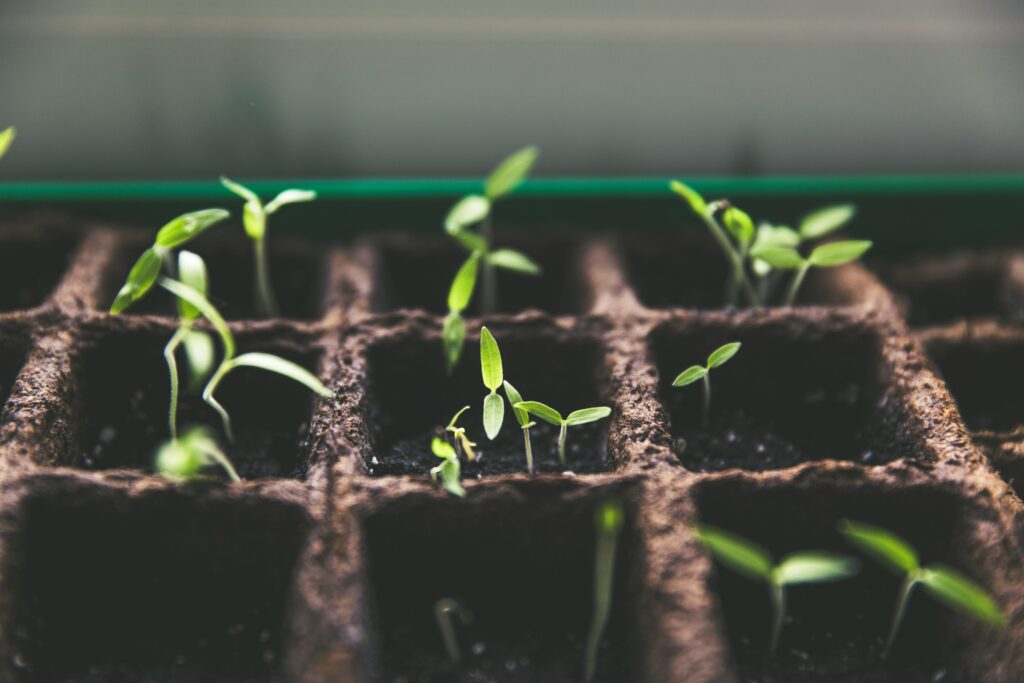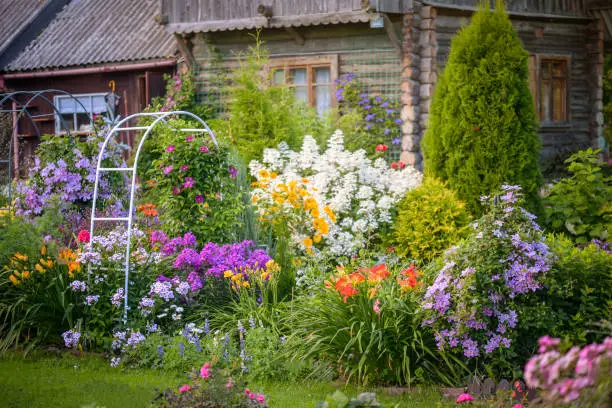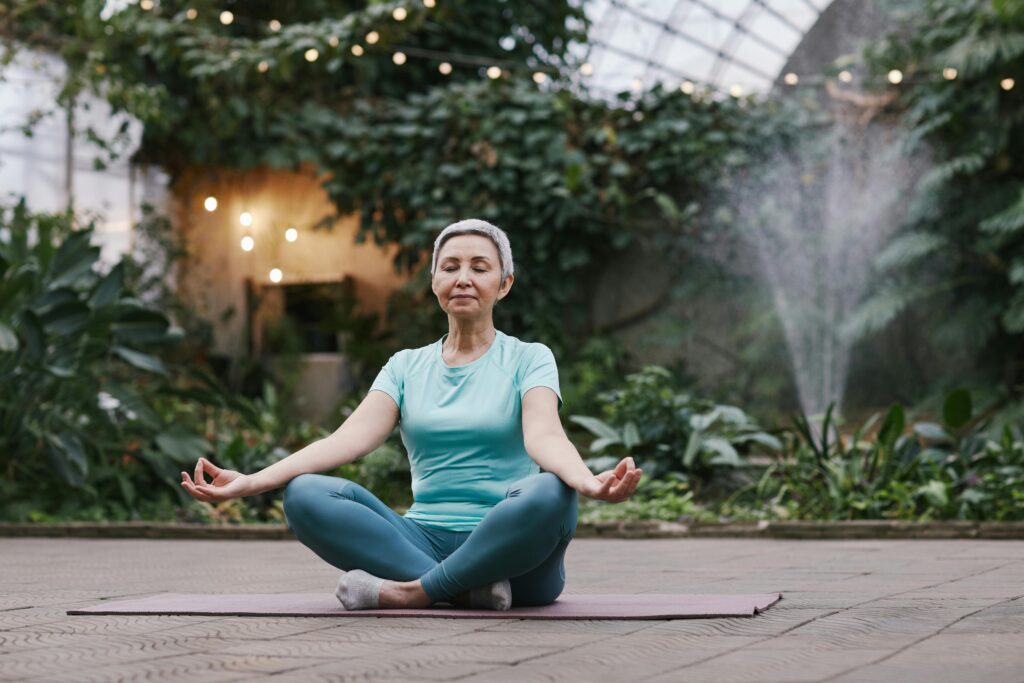
Early in the morning, while the dew still clings to every leaf, gardens have a certain enchanted character. In our universe, life emerges from the smallest of beginnings—seeds, those little vessels of promise just waiting to open out. The narrative of gardens and seedlings is one of amazement of nature, patience, and optimism. You start a voyage of creation, a relationship with the ground itself, the minute you bury a seed there. Let’s investigate this magical planet where one seed starts every garden.
The Trip of a Seed: Starting a Garden
Every garden’s beginning is found in a seed. Little, sometimes disregarded aspects of life abound with possibilities. Whether it’s a bed of vivid flowers, a patch of veggies, or a verdant area that calms a hectic head, they mark the start of something lovely. Every seed has a blueprint for life; with the correct conditions—sun, water, and soil—this potential may be fulfilled. Seeds and gardens entwine in a dance of life wherein one cannot survive without the other.
Selecting the Correct Seeds for Your Garden
Choosing the correct seeds is the first and most crucial choice you make when beginning a garden. There are many options: heritage types, hybrids, organic seeds—all with unique qualities. Matching the environment of your garden with the appropriate seeds guarantees success. Whether your ideal is a rich vegetable patch or a brilliant flower garden, the seeds you pick will determine the path forward. Remember, seeds and gardens mirror your decisions and the attention you provide.
Value of Soil for Gardens and Seeds
To flourish, seeds want caring surroundings; so, the quality of the soil is rather important. Rich, well-draining soil guarantees that seeds have the nutrients they need for sprouting and development into robust plants. Good gardens are indeed created from the ground up, as gardeners often remark. One of the labors of love, soil preparation calls for care and attention. Healthy soil allows seeds to extend their roots and gather the nutrients required for growth.
Starting Seeds: An Exercise in Patience
Planting seeds has some almost meditative qualities. Pressing each seed into the ground causes a subtle sensation of expectation. Is it likely to flourish? For what length of time could one expect sprouting? Gardens and seeds call for a leap of faith, believing in the ways nature creates life. You are reminded of the patience and care gardening needs as you wait for the first indications of development. This is a process one of work, patience, and reward that reflects life itself.
Watering Your Garden: The Seed Lifeblood
Your seeds need water if they are to flourish once they are in the ground. Any garden’s lifeblood is water, and for seedlings, it is the ingredient that begins their development. Too little water will leave your seedlings dry and dead; too much might drown them. Maintaining a good garden depends on striking that equilibrium. Like all things in life, gardens and seeds need balance—just enough water, sunshine, and attention to guarantee that they bloom.
The First Spring: An Ornamental Event in Gardening
The sight of the first green sprout pushing through the ground is completely unlike anything else. This is a little but significant triumph that indicates your patience and attention are paying off. Gardens and seedlings provide these modest triumphs when life obviously reacts to your efforts. Still, that first sprout marks the beginning. It’s an indication indicating the road is far from finished, but you are on the correct one.
Growing Your Garden: Taking Care of Young Plants
Your seeds call more attention as they bloom and flourish. Young plants are vulnerable; hence, it is rather important to make sure they get the correct balance of nutrients, water, and sunshine. Gardening is an ongoing observing and adjusting activity. Every plant has different requirements; thus, the skill of gardening is in learning to interpret the signals. Gardens and seedlings help us to understand the need for tending not only with our hands but also with our eyes and emotions.
Weeding: Keeping Unwanted Guests Out of Your Garden
The weeds in your garden will flourish as well. Weeds must be under control as they fight your plants for nutrients, sunshine, and water. Frequent weeding guarantees that your plants will flourish free from competition. Gardens and seeds have a symbiotic connection based on care; part of that care is shielding your garden from those factors impeding its development. Though it’s a pain, weeding is essential for the health of your garden.
Sunlight’s role in gardens and seeds
Plants cannot develop without sunshine. Without it, photosynthesis cannot take place, and your seeds will fight to become healthy plants. One of the most crucial choices you will make is where to place your garden to get the proper sunshine. Like everything else, gardens and seeds rely on the light; they also rely on water and soil. Energy derived from sunlight drives the whole process of development.
Pollinators’ Value in Seeds and Gardens
Gardens flourish due to their natural environment as much as their seeds and maintenance. Plant development and reproduction depend critically on pollinators such as butterflies and bees. They assist to guarantee that seeds are dispersed, fruits grow, and flowers blossom. Many gardens would battle to flourish without pollinators. Seeds and gardens are part of a greater web of life; hence, knowledge of this helps us design more dynamic and sustainable gardens.
Seasonal Variations and a Garden’s Life Cycle
Gardening is a year-round effort with benefits and difficulties unique for every season. While some seeds are meant for the autumn, others are sown in the spring. Successful operation of your garden depends on knowing its life cycle. Depending on the season, various plants have varied demands; so, part of the pleasure of gardening is learning to live with the cycles of nature. Gardens and seedlings remind us of the cyclical character of life by mirroring the seasons.
Harvesting: Result of Your Work
The harvest is, for many gardeners, the most fulfilling aspect of the operation. Whether you are selecting flowers from a well-tended bed or veggies from a well-kept plot, the harvest marks a celebration. It is the result of all the labor, thoughtfulness, and patience you have given your garden. Gardens and seedlings provide these fulfilling times when the results of your effort are real and nouraging.
Saving Seeds for the Future: Garden Sustainability
Seed preservation is among the most ecologically friendly gardening techniques available. Gathering seeds from your plants can help you to guarantee that your garden will always be expanding. This behavior not only saves money but also aids in the preservation of plant variety. A greater cycle includes gardens and seeds; seed conservation guarantees that this cycle will continue to provide the same richness and beauty for next generations.
Gardening as a Creative Release
Garding is an art rather than just a science. Every choice you make, from the design of your garden to the flowers and plants you will use, has an artistic aspect. Gardens and seeds provide a blank canvas on which you may paint with nature, therefore creating environments that capture your values, preferences, and character. The garden starts to be a living piece of art that develops over time, a mirror of you.
Gardens and Seeds as a Remedy Source
Garding has a naturally healing quality. Planting seeds, tending to them, and seeing them flourish may provide great satisfaction and calm. Many individuals find comfort in their gardens; utilizing the time spent among seeds and plants helps them to relax and re-establish connection with the environment. Garding provides a place for introspection and a subtle reminder of life’s little joys.
Families’ Gardening Activities
Not only is gardening for adults, it’s a great hobby for family to enjoy together. Through gardening, young people may pick up important lessons about patience, responsibility, and nature. Children may really feel successful when they plant seeds and see them flourish. Seeds and gardens start to become a connecting hobby that generates a lifetime of memories.
In Gardens and Seeds, Sustainability
Sustainability is more vital than ever in modern society. One approach to interacting with the surroundings in a constructive and significant manner is via gardens and seeds. Growing your own food, composting, and using sustainable methods can help you lower your carbon footprint and help the earth to be healthy. Gardening helps us to understand the need of living in peace with nature and enables us to make decisions that would help the planet as well as ourselves.
Gardens and Seeds: Their Future
The function of gardens and seeds in our lives becomes increasingly crucial as we go forward into a future unknown. Garding provides a means for us to take charge of our own food supply and help to preserve the earth given worries about food security, climate change, and biodiversity loss. Whether you’re growing a large vegetable patch or a little herb garden on your windowsill, your work adds to a greater movement toward sustainability and self-sufficiency.
Gardens as a Mirror of Life
Gardens and seeds, in many respects, resemble life itself. They serve as a reminder that even the tiniest seed may develop into something amazing, that beauty results from patience, and that change takes time. Gardening helps us to value the process, to enjoy the little successes, and to realize that any difficulty can be overcome with thought and effort.
Ultimately, welcome the enchantment of gardens and seeds.
Garding is a journey, a relationship with nature that gives beauty, food, and calm into our lives, not just a pastime. Gardens and seeds provide us a means of communing with the land, tending to life, and finding purpose in the little deed of planting. Remember that every garden—no matter how little—is evidence of the amazing force of nature and the human spirit as you start your own gardening journey. So choose your seeds, get your hands filthy, and see as your garden transforms into something very wonderful.

